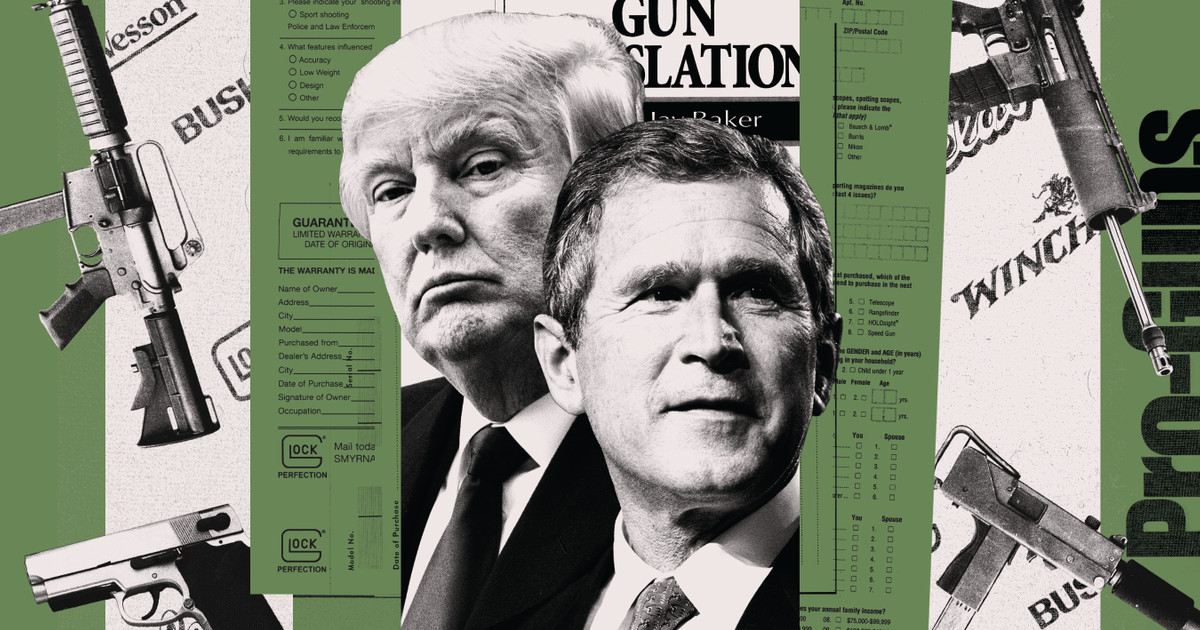For years, several prominent American gun manufacturers provided sensitive personal information about hundreds of thousands of their customers to political operatives, according to an investigation by ProPublica. These operatives then used the information to mobilize firearm owners to elect pro-gun politicians to Congress and the White House.
The exchange of gun buyers’ identities happened without their knowledge or consent, representing a significant shift for an industry traditionally opposed to efforts aimed at tracking firearm owners in the U.S. At least 10 gun industry businesses, including Glock, Smith & Wesson, Remington, Marlin, and Mossberg, supplied personal data like names and addresses to the National Shooting Sports Foundation (NSSF), the industry’s chief lobbying group. The NSSF compiled the data into a substantial database.
The initial data came from warranty cards that customers filled out for rebates and repair or replacement programs. ProPublica discovered that while some warranty cards assured customers of confidentiality, others indicated that information might be shared with third parties for marketing purposes. However, none disclosed that the data would be used by lobbyists to influence elections.
The database was initiated around 17 months prior to the 2000 election, amidst financial, legal, and political challenges faced by the industry. By 2003, this database contained information on at least 5.5 million individuals, including data from voter rolls and hunting licenses. The database was a unique tool allowing the NSSF to contact gun owners, a capability usually restricted due to privacy laws concerning firearm purchasers.
Jon Leibowitz, a former chair of the Federal Trade Commission, reviewed several company privacy policies at ProPublica’s request. He noted that by sharing customer information without consent, firearms companies might have violated federal and state laws against deceptive business practices, potentially facing civil sanctions.
In a statement, the NSSF defended the data collection as legal and in alignment with individual manufacturers’ terms and conditions. Several gun companies either could not comment or denied knowledge of past data sharing, claiming changes in ownership since then.
ProPublica verified the program through extensive internal documents and interviews, revealing a decades-long effort to politically mobilize gun owners. The NSSF’s voter education program was supported by confidential gun owner data, persuading individuals to vote for pro-gun candidates. From 2000 to 2016, the organization invested over $20 million in this initiative, crediting it with pivotal election victories such as those of George W. Bush and Donald J. Trump.
In 2016, some of the NSSF’s data made its way to Cambridge Analytica, a political consulting firm, which enhanced it with additional consumer information to create detailed psychological profiles of gun owners.
The voter mobilization efforts, branded as GunVote, continue, but the current role of the database remains unclear. The strategy delivered significant political victories for the gun industry, including blocking renewals and enactments of gun control measures. The NSSF has acknowledged using customer data in the past but claims to only employ commercially sourced data now.
As mass shootings continue to occur, the political candidates supported by the NSSF have consistently opposed additional firearm regulations, even propositions widely supported by the public. Despite ongoing political and societal debates around gun control, the NSSF’s influence through political mobilization and electioneering remains a significant factor in the U.S. legislative landscape.
